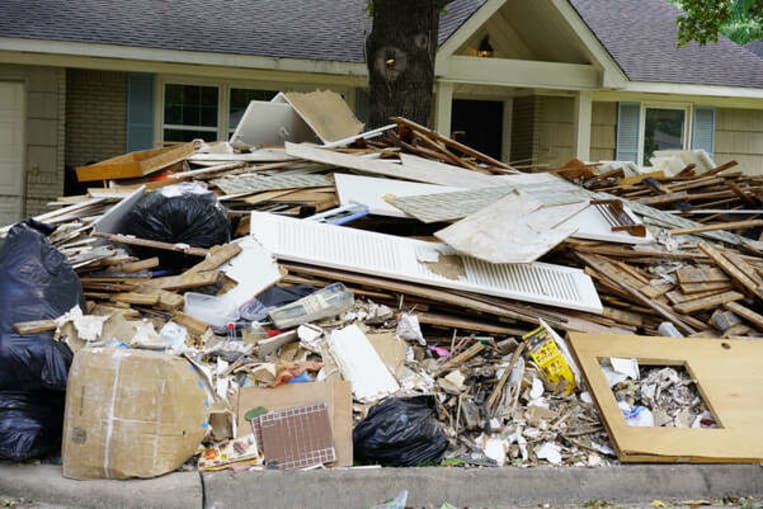
BBB Tip: Debris removal after a disaster

(Getty)
Disposal of debris is a major concern in the aftermath of a disaster. No matter where you are, much of the type of debris encountered will be much the same: damaged buildings, downed trees, building materials, and household and other types of hazardous waste. What varies is the way in which each state disposes of the debris. Some states have particular issues about where debris can be stored.
Consumers should check with their city’s or county’s disposal departments or FEMA for information on where debris may be disposed of or stored. Remember, your main goal is to regain your sense of normalcy while doing so within the guidelines set by each state or federal agency.
BBB offers the following tips and information for debris removal:
Debris is hazardous. It often has sharp or rough edges that can cause bodily harm. It may contain hazardous material such as asbestos, lead or fiberglass; and it may have been contaminated with chemicals or germs by the flood or storm.
When cleaning up debris, one of the first steps is to assess the types of waste you are dealing with, and what the disposal procedures should be. They fall into four main categories and can be disposed of in the following ways:
-
Branches, trees and vegetative wastes can be separated from the other debris and later can be sent to the community burn pile. These wastes can also be sent to a permitted disposal site.
-
Construction debris – the structural materials from houses and buildings, such as concrete, boards, shingles, windows, siding, pipes, etc. – can be taken to the closest construction and demolition landfill or a permitted municipal solid waste landfill.
-
Other household wastes, such as trash and furniture, should be sent to a permitted municipal landfill.
-
Hazardous wastes – If you believe the waste contains regulated hazardous materials, more care and caution is needed. These wastes should be containerized, labeled, and ultimately sent to a facility that is permitted to store, treat or dispose of hazardous wastes. In these instances, it is important to contact the department to discuss proper disposal procedures.
Items Requiring Special Disposal:
-
Pool chemicals
-
Tires
-
Automobile batteries
-
Bicycles
-
PVC pipe
-
Explosives (ammunition, re-loading equipment, black powder, military ordinance, fireworks)
-
Fuel containers, metal or plastic
-
Pressurized gas cylinders/tanks (propane tanks, acetylene tanks, refrigerant containers)
-
Containers of petroleum-based liquids, solvents, chemicals, etc.
-
Large household appliances (refrigerators, freezers, stoves, washers, dryers, etc.)
-
Off-road, gas-powered equipment (lawn mowers, tractors, edgers, leaf blowers and other lawn equipment, chainsaws, 4-wheelers, etc.
-
Lawn and garden supplies (fertilizers, pesticides, etc.)
-
Radioactive waste
-
Industrial/commercial hazardous waste
-
Medical waste
-
Automobiles
-
Electrical transformers
Any appliances that could potentially contain Freon or other chlorofluorocarbons (CFCs) cannot be disposed of until they have been certified as being free of Freon or CFCs.
Disaster victims should never feel forced to make a hasty decision or to choose an unknown contractor. For more information about hiring help in the wake of a disaster, read our tips on what to do after the storm. For reliable information, lists of BBB Accredited Businesses by industry and BBB Business Reviews you can trust on local businesses, visit BBB.org.
Still Need Assistance?
Contact Your Local BBB
Your local Better Business Bureau can assist you with finding businesses you can trust. Start With Trust®.
Additional Resources
Central Ohio BBB Business Podcast